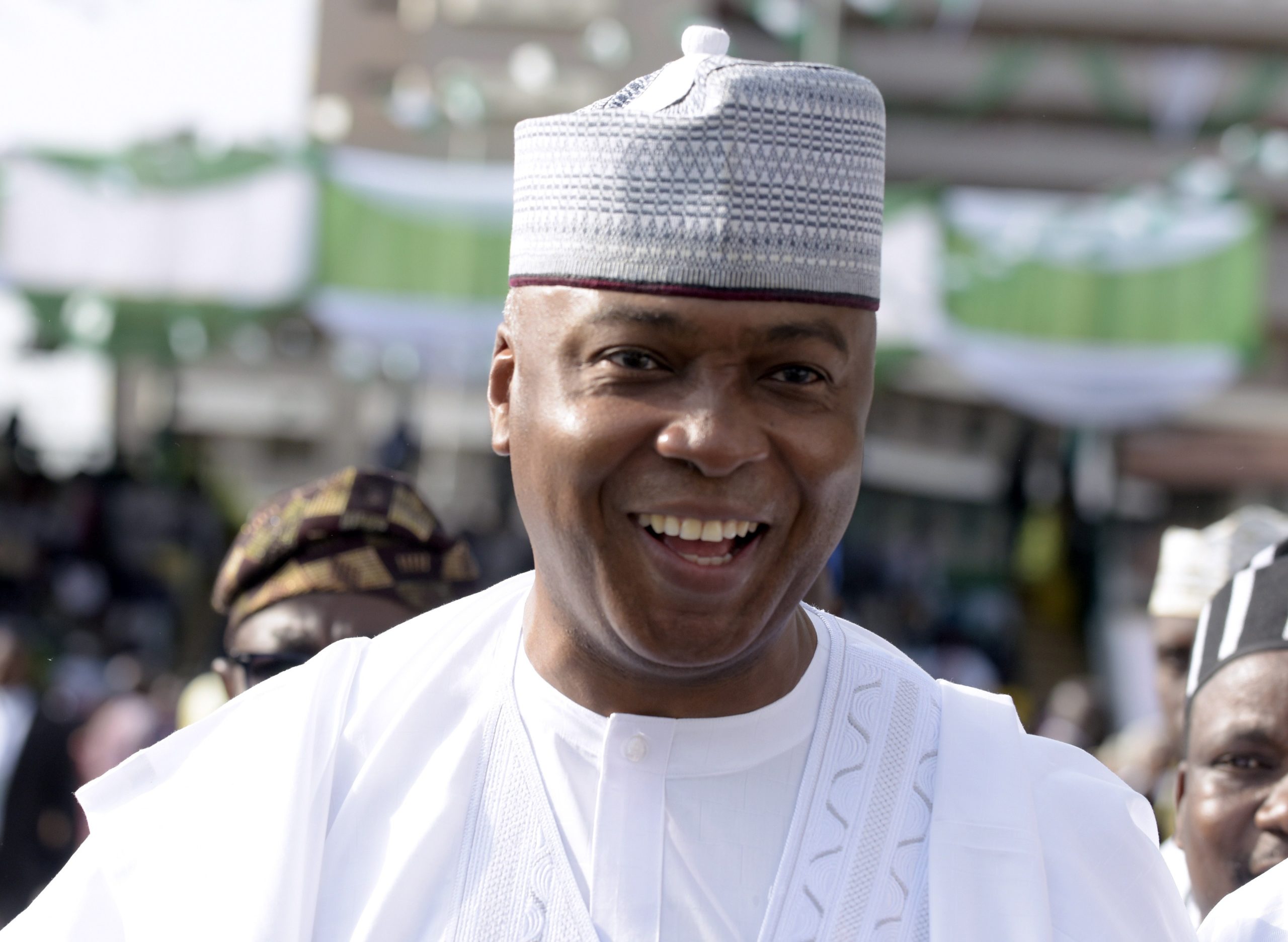- FG Spends N2tn Annually on Goods
The Senate President, Dr. Bukola Saraki, has said that the Federal Government spends more than N2tn on the purchase of goods every year.
According to the Special Assistant to the Senate President on Print Media, Mr. Chuks Okocha, Saraki said this on Thursday when members of the Leather and Allied Products Manufacturers’ Association of Abia State visited him.
The visit of the APMAA was premised on the support of the Senate and the Federal Government of their campaign for the patronage of locally-made goods in order to cut dependence on foreign goods.
At the meeting, Saraki said the National Assembly would henceforth punish any ministry, department or agency which violates the Public Procurement Law.
The law mandates the MDAs to give preference for locally-produced goods, especially during this period when the Federal Government has been campaigning for the patronage of Made-in-Nigeria goods.
The Senate President also charged the Senate committees’ chairmen to ensure that the MDAs comply with the Public Procurement Law.
He also encouraged all military and paramilitary agencies to emulate the Nigerian Army by procuring items like boots and other locally-made goods so that a large part of the N2tn that the government spends annually in the purchase of goods ends in the pocket of Nigerian manufacturers.
He said, “We will make the campaign to buy Made-in-Nigeria goods to go beyond a trade fair and become a national agenda for all Nigerians. Today, we have made it a national project.
“I also promise you that we will amend the existing laws to give your efforts a solid legal backing that will ensure patronage for your products and that of other local manufacturers. That has also been done with the amendment of the Public Procurement Act.”
The APMAA coordinator, Chief Ben Hart, commended the Senate for its support in promoting locally-made goods.
He said, “We shall continue to improve on the quality of locally-made goods. Goods produced in Aba are indeed of high quality. There is nothing that can be manufactured elsewhere which cannot be produced in Aba.”
…says youths need urgent empowerment
Senate President, Dr. Bukola Saraki, has said that government, the private sector and the academia must redouble their efforts to empower Nigerian youths for entrepreneurship and greater self-reliance.
He said given the latest information released by the National Population Commission that more than half of Nigeria’s 182 million population is under 30 and another 40 per cent of that being under 14, one of the greatest challenges the country had to grapple with was the need to gainfully engage its growing youthful population.
Saraki, who was speaking about an upcoming skills acquisition, training and empowerment programme that would be launched in Kwara State on Saturday (today), noted that since the future of Nigeria’s economic security rests on how prepared the youths are today, they must be made entrepreneurs who would be employers of labour “instead of looking for non-existing jobs.”
A statement by his Media Adviser, Yusuph Olaniyonu, noted that under the programme, 40,000 youths would be trained for a period of four years in areas such as computer engineering, software development, animation, cinematography, event management and other areas where the participants could grow to be self-employed.
It added, “The goal of STEP is to make participants globally competitive in the sectors for which they will be trained. Such preparation is important for future employment, starting businesses, creating jobs and putting able-bodied and motivated youths to work.”
The statement quoted Saraki as saying, “We were able to craft a programme whereby participants will be trained by Nigeria’s best and most successful business leaders, technology entrepreneurs and other industry practitioners.”

 Forex3 weeks ago
Forex3 weeks ago


 Naira2 weeks ago
Naira2 weeks ago
 Billionaire Watch2 weeks ago
Billionaire Watch2 weeks ago




 Naira2 weeks ago
Naira2 weeks ago




 Naira2 weeks ago
Naira2 weeks ago




 Naira1 week ago
Naira1 week ago




 Naira4 weeks ago
Naira4 weeks ago




 Naira3 weeks ago
Naira3 weeks ago






















